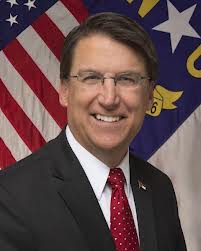I grew up the son of a teacher. Then I became a teacher. Though, to be fair, I only lasted a single year. It was a small town, a “negotiation” year and I really didn’t like the whole incentive thing. As a result of the negotiations, which were conducted by a small negotiation team made up of men, the compensation system in the contract changed. Teachers are paid based on a grid. New rookie teachers with no more education than a bachelors degree start in the upper left hand corner of that grid. For every year of experience, they get to “step” down the grid and get a raise. The further down you go, the more you make. Teachers can also move across the grid. They do this by obtaining more education. When they acquire enough, they are said to change “lanes” and move from the left to the right.
The highest paid teachers are in the lower right corner of the grid.
I lost faith when I realized, very quickly, that I would never catch up to the old crummy teachers I worked with. And when that negotiating team reduced the number of lanes from 9 to 3 in exchange for higher coaches salaries [the negotiation team consisted of mostly coaches].
I now have no ties to education save that my kids are in school. Further, I am in an occupation where I am not in a union. My continued employment is dictated by market conditions combined with my ability to produce value for my bosses. Further, my salary is determined by the success of the firm and my contribution to it.
The better I do the more I make and the stronger my job security is. The converse is true.
It is my love of teachers and the role they play in the development of our kids AND the power of market based incentives that makes me love this story of merit based teacher’s salaries:
WASHINGTON — During her first six years of teaching in this city’s struggling schools, Tiffany Johnson got a series of small raises that brought her annual salary to $63,000, from about $50,000. This year, her seventh, Ms. Johnson earns $87,000.
That latest 38 percent jump, unheard of in public education, came after Ms. Johnson was rated “highly effective” two years in a row under Washington’s new teacher evaluation system. Those ratings also netted her back-to-back bonuses totaling $30,000.
In my calculus, the district accomplished two things:
- It created a massive incentive to perform.
- It created a massive incentive to continue teaching.
“Lots of teachers leave the profession, but this has kept me invested to stay,” said Ms. Johnson, 29, who is a special-education teacher at the Ron H. Brown Middle School in Northeast Washington. “I know they value me.”
I love this statement: “This has kept me invested to stay.”
EXACTLY!
When an organization values an employee it helps retain that employee. When that value takes the additional value of added pay, that retention is even greater!
On the other hand, there is the opposite phenomena , one that I consider more dangerous to the education of our kids; the incentives provided to the poorest performing teachers:
Under the system, known as Impact Plus, teachers rated “highly effective” earn bonuses ranging from $2,400 to $25,000. Teachers who get that rating two years in a row are eligible for a large permanent pay increase to make their salary equivalent to that of a colleague with five more years of experience and a more advanced degree.
Those rewards come with risk: to receive the bonuses and raises, teachers must sign away some job security provisions outlined in their union contract. About 20 percent of the teachers eligible for the raises this year and 30 percent of those eligible for bonuses turned them down rather than give up those protections.
There are teachers who are SO concerned with losing their jobs that they turned down the money. Turned. Down. The. Money.
Two things:
- These are teachers we should work to remove.
- These teachers WERE compensated for their labor. The fact that they value job security MORE than the money does NOT mean that they didn’t receive anything of value.
I look forward to continued market based, merit based teacher compensation.





